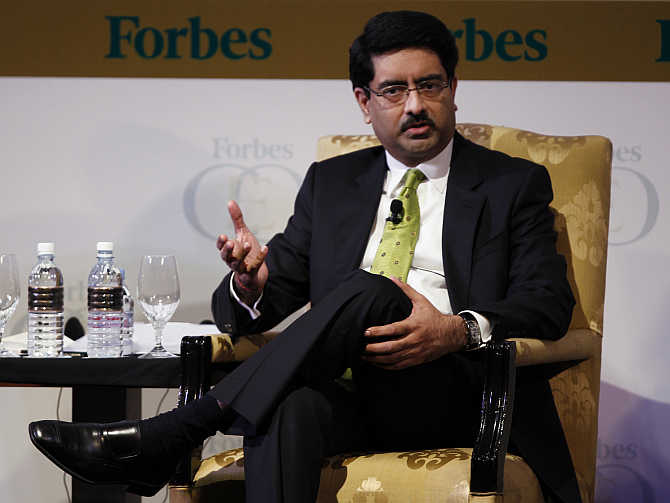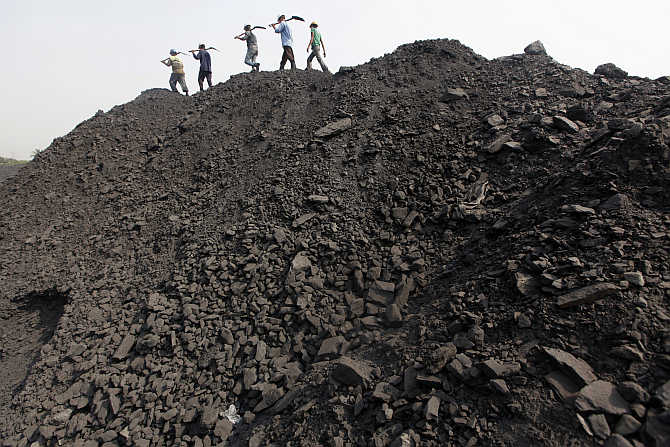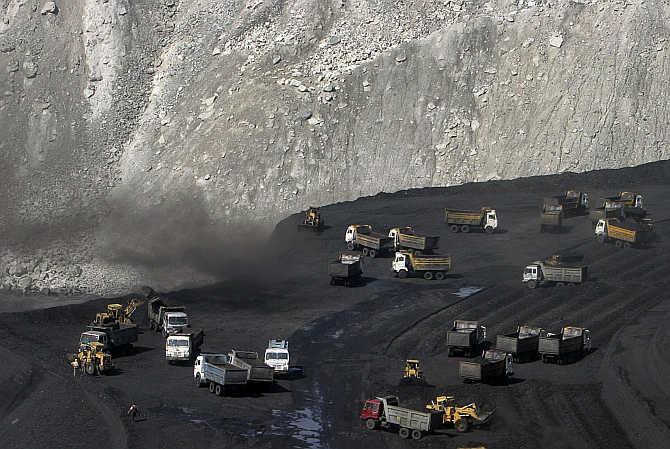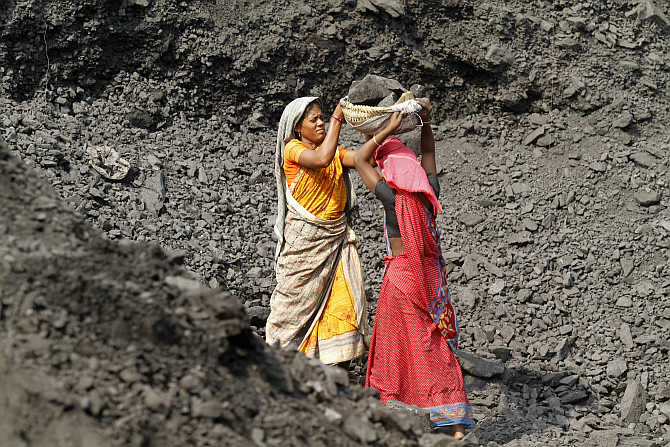
The Central Bureau of Investigation’s first information report against Aditya Birla Group Chairman Kumar Mangalam Birla and former coal secretary P C Parakh with regard to the allotment of the Talabira-II coal block in Odisha has reignited the controversy over coal block allocation.
Talabira-II isn’t the only mine allocated to the Birla group. A Comptroller and Auditor General report cites the allocation of three additional mines to group companies Ultratech and Hindalco. Hindalco shares the Talabira-II mine with two public sector companies - Mahanadi Coalfields and Neyveli Lignite Corporation.
The CBI began investigations into the coal mining allotment after the Supreme Court asked it to probe the issues raised by CAG, which had said the government lost Rs 1.8 lakh crore (Rs 1 trillion), as the mines weren’t auctioned and the allocations weren’t transparent. CBI officials said they were probing whether the coal ministry and the Prime Minister’s Office had shown favouritism while allocating the mine to Hindalco.
Hindalco officials said they hadn’t gained from the Talabira-II allocation, as the block hadn’t started production due to lack of environmental clearances. Instead, it has suffered due to lack of coal supply for its Rs 16,000-crore (Rs 1,600 billion) aluminium plant; now, it was buying coal from other sources. The Talabira-II mine was to meet 80 per cent of Hindalco’s power plant requirements.
...

According to government records, the first application for the Talabira-II mine was made by Indal in 1996. Indal was acquired by Hindalco in 2000; the block was allocated the mine in November 2005. The CBI is investigating why, within two months, the coal ministry and the PMO had changed a decision made in 2005.
According to government records, in August 2005, the government first decided not to allot a mine to Hindalco, but changed its mind within two months. The Ministry of Coal first sent a Talabira recommendation file to the prime minister in August 2005, saying the screening committee led by Parakh had considered three major contenders for allocation of Talabira-II and had decided to allocate the block to Neyveli, as adequate coal linkages had been provided to Hindalco from Mahanadi Coalfields a long time ago. But Hindalco had not used the coal, it added.
The ministry said the Talabira-II & III blocks had to be developed together, to extract an additional 30 million tonnes of coal which would have otherwise gone waste at the boundaries of each block (the Talabira-III coal block was separately allocated to Mahanadi Coalfields) and Neyvelli and Mahanadi Coalfields could develop the two blocks together, through a joint venture.
...

Even as the file was processed by the prime minister, Odisha Chief Minister Naveen Patnaik wrote to the prime minister on August 17, 2005, urging the government to allocate the mine to Hindalco. Patnaik’s letter said aluminium plant should get higher priority over independent power plants, as those generated more employment, created more wealth for the country and added to the growth of the manufacturing sector directly.
The PMO said it had received a letter dated May 7, 2005, from Birla, requesting allocation of the Talabira-II coal block to Hindalco, for its 650-Mw captive power plant in its aluminium project and a 100 Mw captive plant for expansion at its Hirakud Aluminium plant in Odisha. On August 29, 2005, the coal allocation file was returned to the ministry, along with Patnaik’s letter, for re-examination.
The On September 16, 2005, the coal ministry resubmitted the file, with the revised proposal that Talabira II & III be merged into a single mine, and the mining be carried out by a joint venture between Mahanadi Coalfields, NLC & Hindalco. While Mahanadi was to get 70 per cent stake, Neyvelli and Hindaclo were to get 15 per cent stake each. With the merger, the capacity of the mine increased to 555 million tonnes. Another applicant, Orissa Sponge Iron, was removed from the list.
...

On October 1, the prime minister approved the ministry’s proposal and the mine was allotted in November. A Hindalco source said the amalgamation of the two mines was aimed at reducing production losses due to demarcation of the boundaries between the two mines.
In a statement on October 19, the PMO accepted the decision on the allocation of Talabira-II and III coal blocks varied from the screening committee recommendations. It, however, added the decision was taken following “a representation” it received from one of the parties.
“The prime minister is satisfied the final decision taken in this regard was entirely appropriate and based on the merits of the case placed before him,” the statement said. Since then, the CBI has asked the PMO to hand over all the files related to the allotment.
The investigation is underway.